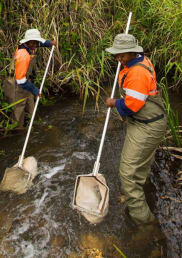Stockpile security and reducing surplus weapons: Biting the Bullet - Briefing 3
This briefing in the Biting the Bullet series aims to inform the Plan of Action (PoA) of the UN 2001 conference on Illicit Trade. It outlines the dimensions of the issues, drawing on recent experience, and identifies ways in which an international action programme could usefully be developed to address them.
Measures to enhance the security and management of legal stocks of small arms and to reduce ‘surplus’ weapons are clearly essential components of an effective international action programme to combat illicit trafficking and prevent and reduce the proliferation of small arms.
Many of the weapons of concern are lost from official stockpiles through theft, corruption or neglect. Moreover, the existence of large quantities of ‘surplus’ small arms is a major factor in the excessive availability and flows of these weapons.
The primary responsibility for measures to address these problems lies with governments. Regional and international organisations involved in any way with managing and disposing of small arms also have important responsibilities to take action. Nevertheless, this is a global issue, and the entire international community should play a role in developing policies on the management of stockpiles and the disposal or destruction of surplus weapons.
The briefing claims that the conference should aim to achieve agreement on a number of specific commitments, relating to conducting regular reviews of national small arms holdings; identifying and disposing of surplus arms; adopting a norm for the destruction of surplus small arms; promoting transparency and awareness of surplus arms destruction processes; acting with great restraint in authorising transfers of surplus small arms; requiring responsible disposal of small arms that are rendered surplus by transfers; ensuring destruction of all confiscated, collected or inadequately marked small arms; ensuring responsible disposal of surplus parts and components and ammunition; requesting early assistance where necessary for implementation of commitments; and providing assistance in response to such requests.






